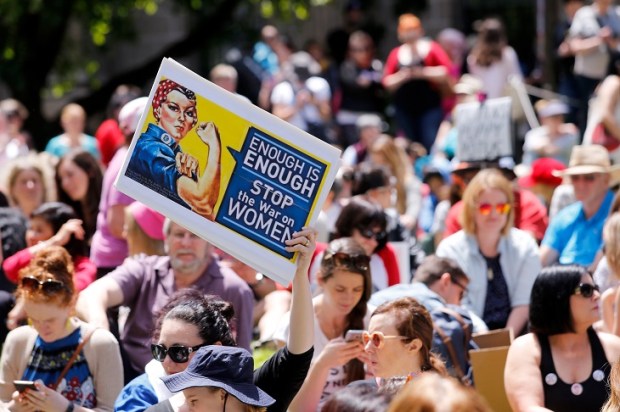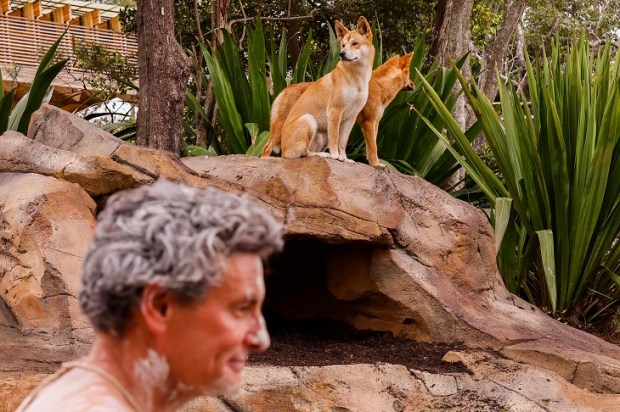The scariest thing about some political debates in Australia is not the polarisation or nastiness that can often arise – that’s always been there, what I find most alarming is how the main protagonists in a debate can often reach agreement on things that are simply false.
Take the current debate over the Indigenous Voice, with Prime Minister Albanese supporting a national Voice, and Opposition Leader Dutton now proposing a network of regionally based Voices.
The basic premise of both these models is in fact uncontested, and that is the solution to solving Indigenous disadvantage is to ‘hear’ from Indigenous people who are ‘on the ground’.
Everyone is on the ground, but that doesn’t mean what they have to say is useful or pertinent for setting government priorities.
If a Voice bureaucrat was to ask me what I needed from the government to improve my life, I’d give them my account number and BSB and encourage them to donate as much as possible.
If you were to ask someone with a bit more impartiality, they’d probably advise me to get more sleep, eat less, and renew the gym membership.
It really is astonishing that we are contemplating this elaborate constitutional change to preference the views of one racial group, when the success of Western democracies is largely due to creating institutions that can do their work in a way free from special interest, the powerful, and the deceitful.
When discussing the Voice, I often hear people recount the experience they had in touring an outback community. Similar to people who visit the poorer areas of India, they are stunned at what they see, and often develop a deep sympathy.
Their experience makes them more inclined to ‘do something’ and therefore sit on the side of supporting something like the Voice.
This desire to improve a situation is admirable, but there is little use for a soft heart when determining solutions, what’s needed is a clinical approach, one informed with facts and one that will actually work. The problem with a soft heart is that it can lead to a soft head, and point to policy solutions that are ‘kind’, but typically ineffective.
It is this softness of heart, coupled with the ongoing fear of being labelled ‘racist’, which is causing our political leaders to misdiagnose the problems faced by Indigenous people and coming up with solutions that won’t work.
Indigenous people face disadvantage because of two primary factors that most people know but of which few are willing to speak publicly.
The critical issue is the existence of remote communities where daily life for many people is neither traditional nor does it involve the typical work/mortgage/retirement existence of those living in Australian cities and major regional centres.
These people are caught between worlds, and getting none of the self-esteem benefits which go with surviving and thriving in either.
The issue is not choosing to live in a remote area. The problem comes when a lifestyle choice is subsidised by others, because it prevents the residents of those remote settlements from having to deal with the reality of their choices.
To survive in a harsh environment with minimal technology and reliance on your own ingenuity, toughness, and resolve is a remarkable achievement, as Aborigines did for thousands of years.
But a life of welfare, with very few health and education services, creates a recipe for disaster.
Some argue these communities will thrive when more services are provided, but it’s absurd to expect a settlement with just 75 residents to have the same services as a larger centre.
And even if these services were found and introduced, they still do not deal with the self-respect destruction inherent in a subsidised existence.
If by a miracle the Albanese and Dutton Voices were willing to recommend the withdrawal of remote community subsidies, the resistance amongst the various Indigenous representative and service delivery organisations would be overwhelming.
Indeed, curiously, one of the few Voice design principles we have seen published so far, directs the Voice to ‘respect’ the work of ‘existing’ Indigenous organisations. You would think that, at a minimum, the design of the Voice would put on notice all existing organisations to expect fundamental reform due to failure to ‘close the gaps’.
Sound public policy is not about any particular group ‘being heard’, it is concerned with the rigorous and formal assessment of facts within a cost/benefit framework. This process works best when it is dispassionate and not influenced by anything other than the facts.
Indigenous communities have never struggled with being heard, the problem is that the solutions to address underlying problems involve choices that no one is willing to make, so money is thrown around hoping it lands somewhere useful. Free money is actually at the root of the problem.
In effect, ongoing Indigenous disadvantage is actually the product of deliberate choices. But we all pretend otherwise.
The barrier to success is not on the disagreements over the Voice model, it is the agreement on what is the underlying problem, namely that we need to ‘listen’ to those ‘on the ground’.
Nick Hossack is a public policy consultant. He is former policy director at the Australian Bankers’ Association and former adviser to Prime Minister John Howard.

























